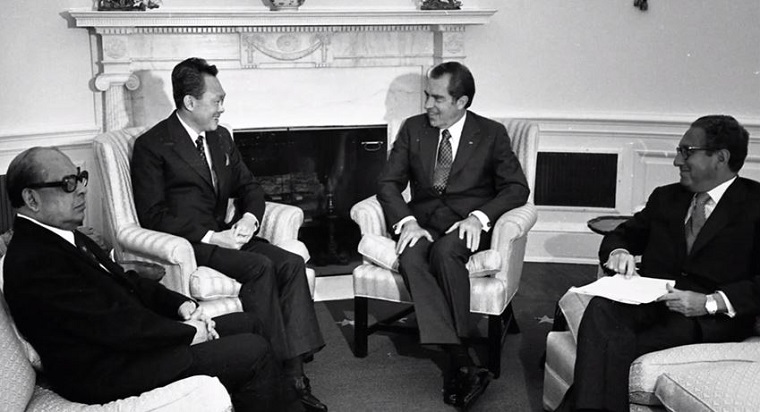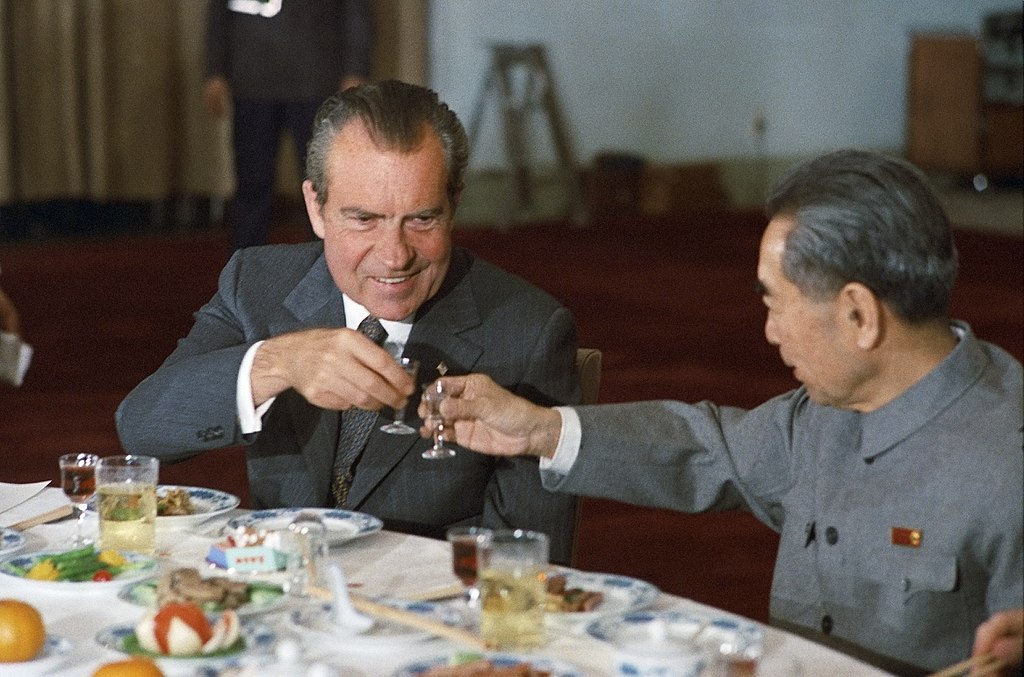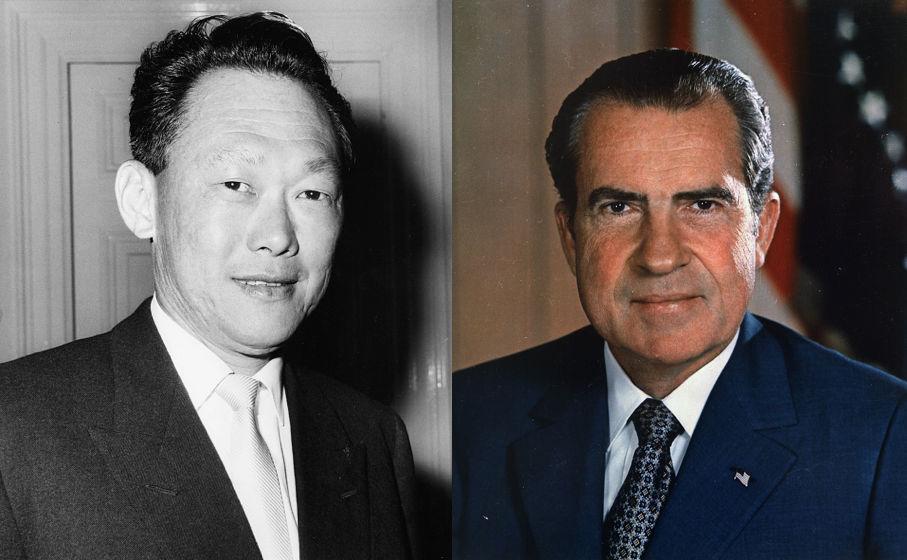Singapore's late founding prime minister Lee Kuan Yew (LKY) was well-known as a statesman with astute views on international relations.
Many world leaders past and present, including a long line of U.S. presidents such as Barack Obama, had sought his views and advice from him, particularly about the region and China.
Richard Nixon
One notable figure who had sought LKY's advice in the past was Richard Nixon, the late 37th president of the U.S. from 1969 to 1974.
[caption id="" align="aligncenter" width="3120"] Richard Nixon. Source: Wikipedia[/caption]
Richard Nixon. Source: Wikipedia[/caption]
Nixon was an admirer of LKY, and in his memoirs written later in his life, had described LKY as one of the two most capable leaders he had ever met.
Before he was elected president in November 1968, Nixon travelled extensively around the world meeting various leading political figures and seeking their views on the world.
Among others, he met the likes of French president Charles de Gaulle, German chancellor Konrad Adenauer, Pakistani president Muhammad Ayub Khan, and of course, LKY.
Nixon and LKY met on April 18, 1967, when Singapore was SG2 with LKY as prime minister. Both men had a two-hour discussion centred mainly on China and the region.
What was going on in the world back then?
In order to understand (and appreciate) what LKY said to Nixon on the topic, it's useful to get a quick crash course what was going on in the world in the 1960s.
The Cold War, which saw the global ideological battle between communism and American capitalism, was taking place, with the two leading world powers of the day -- Soviet Russia and the U.S. -- pitted against each other.
Two manifestations of the Cold War in the region at the time when LKY met Nixon in 1967 was the ongoing Vietnam War (communist North Vietnam vs. anti-communist South Vietnam) and the U.S. distrust of communist China.
A tale of two Chinas
Since the late 1940s, there were two Chinas -- the People's Republic of China (PRC) and the Republic of China.
Essentially, the People's Republic of China is the communist state that remains as the China we know of today, while the non-communist Republic of China is known as the present day Taiwan.
The political forces running both Chinas had been at loggerheads, ever since the Chinese civil war, which saw the communists driving the nationalists out of mainland China.
The latter, which had the support and recognition of the U.S., would retreat to Taiwan and remain there to the present day.
At the time LKY met Nixon, the PRC was also going through the tumultuous period of the Cultural Revolution.
It was against this backdrop of the world and America's paranoia against communism that Nixon, who had yet to be president, met LKY.
[caption id="" align="aligncenter" width="771"] Chairman Mao declaring the founding of the People's Republic of China in 1949. Source: Wikipedia[/caption]
[related_story]
So, what did LKY tell Nixon?
America had thought communism was a monolithic behemoth, and naturally grouped Soviet Russia and communist China together as friends.
But LKY thought otherwise. Recalling this two-hour meeting with Nixon, LKY said in 1996:
"I said that if I were an American, I would consider that China shared a 4,000-mile boundary with the Soviet Union, a boundary which the Russians had changed only in the last century. So they had unresolved problems. There was no boundary between the US and China. The US had drawn a line across the Taiwan Straits with the Seventh Fleet, but this was a line drawn on water, and need not be perpetual. There was much to be gained by engaging China."
This point was also reflected in his memoirs The Singapore Story:
"Asked about the US-China enmity, I said there was no natural or abiding source of enmity between China and the United States. China's natural enemy was the Soviet Union with whom it shared a 4,000-mile boundary which had been shifted to China's disadvantage only in the last 100 years. There were old scores to settle. The boundary between America and China was an artificial one drawn on water across the Straits of Taiwan. It was ephemeral and would pass with time."
[caption id="" align="aligncenter" width="760"] From Mothership's file[/caption]
From Mothership's file[/caption]
Nixon's changed views on China
It was unlikely that LKY's views alone would have changed Nixon's views overnight.
But it did seem that the meetings with world leaders on Nixon's travels had some collective influence on his views on China.
In an article published in the prestigious Foreign Affairs journal after his travels, Nixon wrote:
"Taking the long view, we simply cannot afford to leave China forever outside the family of nations, there to nurture its fantasies, cherish its hates and threaten its neighbours…. There is no place on this small planet for a billion of its potentially most able people to live in angry isolation."
Nixon would eventually become president, taking office in January 1969, and he would meet LKY again that same year, as LKY noted in his memoirs:
"When we met in Washington in 1969, Nixon again questioned me on China. I gave him basically the same replies. I did not know then that his mind was already focused on China to improve America's position vis-à-vis the Soviet Union."
Later on, Nixon would stun Americans and the world, when he announced on July 15, 1971, that he would be making an official trip to the People's Republic of China in the following year.
This marked a turning point in world history, as it became the first step towards the normalisation of U.S.-China relations.
[caption id="" align="aligncenter" width="1024"] Richard Nixon and Zhou Enlai in 1972. Source: Wikipedia[/caption]
Richard Nixon and Zhou Enlai in 1972. Source: Wikipedia[/caption]
Top image from Getty Images and Wikipedia.
If you like what you read, follow us on Facebook, Instagram, Twitter and Telegram to get the latest updates.
